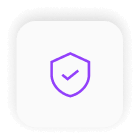In today’s fast-paced world, international travel has become common for both leisure and business. However, medical emergencies can happen anywhere. That’s where a medical passport steps in as a critical tool in global health management.
But what is one medical passport exactly? In simple terms, it’s a comprehensive, portable health record that ensures your critical patient information is always within reach, no matter where your journey takes you.
Whether you’re dealing with chronic conditions, allergies, or sudden medical emergencies abroad, a medical passport can mean the difference between confusion and clear, effective care.
What Is a Medical Passport and Why Does It Matter?
What is a medical passport? It is a digital or physical document containing your personal health record, consolidated medical history, vaccination history, emergency contact details, and other essential patient information. Think of it as a universal health file designed to assist healthcare professionals in providing appropriate and timely care while you’re outside your home country.
When you’re thousands of miles away from your primary healthcare provider, language barriers, different medical systems, and a lack of accessible records can complicate treatment.
A medical passport bridges that gap by giving any medical professional immediate access to your medical history, saving time and potentially lives. In emergencies, this passport ensures that doctors can act swiftly, knowing your allergies, existing conditions, and ongoing treatments.
Beyond emergencies, having this documentation also streamlines routine care, like prescription refills or necessary vaccinations while abroad. In short, a medical passport is not just helpful – it’s essential.
The Role of Health Records and Patient Information in a Medical Passport
The cornerstone of your medical passport is your health record and patient information. These details provide a clear picture of your current health status and medical needs. Your health record should include:
- Past medical diagnoses and surgeries.
- Current medications and dosages.
- Known allergies, including medication and food allergies.
- Blood type and significant genetic conditions.
Accurate and up-to-date patient information can prevent misdiagnoses and adverse reactions to medications. It also helps reduce redundant testing by giving healthcare professionals a clear understanding of your medical baseline.
Digital medical passports can be especially useful, as they’re easily updated and more secure than paper documents. Several secure platforms now enable patients to upload, store, and manage their health data for international access. The Office of the National Coordinator for Health Information Technology (ONC) is one resource for understanding how electronic health records can support this process.
Travel Health and the Importance of Immunization Records
Global travel exposes you to different pathogens and health risks. A medical passport containing an accurate immunization record is your frontline defense when crossing borders. Some countries even require proof of specific vaccinations for entry, such as Yellow Fever or COVID-19.
Beyond legal requirements, an up-to-date vaccination history also informs healthcare providers about your immune preparedness. Whether you’re traveling to areas with malaria, typhoid, or hepatitis outbreaks, your immunization record helps local healthcare professionals make timely decisions on preventive treatments or boosters you might need.

Additionally, many diseases manifest differently across populations, and vaccination strategies can differ from one country to another. Carrying this record ensures that you’re never caught off-guard, and doctors are never left guessing about your vaccination status.
Vaccination History and Emergency Contact Essentials
Your vaccination history isn’t just about fulfilling entry requirements; it also serves as a medical safety net. Knowing what vaccinations you’ve received prevents unnecessary revaccination or delays in emergency treatment.
Similarly, your emergency contact details are vital. Ensure your medical passport lists:
- Primary family contact with international dialing codes.
- Alternate contact (like a friend or secondary family member).
- Your primary healthcare provider’s contact information, if applicable.
Having accurate emergency contact information ensures that local authorities and healthcare providers can reach your support network swiftly, enhancing decision-making during critical care scenarios.
Building a Reliable Medical History for International Travel
A comprehensive medical history provides a foundation for appropriate care. Even minor omissions can lead to incorrect treatment abroad. Building a reliable medical history involves consolidating records from your general practitioner, specialists, and past hospitals.
Don’t forget to include:
- Mental health conditions.
- Past surgeries, hospitalizations, and injuries.
- History of substance use or addiction recovery.
- Any implanted medical devices (like pacemakers).
Digitalizing your medical history through secure platforms is advisable. Several non-profit organizations, like the World Health Organization (WHO), offer guidance on maintaining personal health records for international travelers. For more, see the WHO’s traveler health recommendations.
When your records are complete, your medical passport essentially becomes a portable version of your personal health database.
How Healthcare Providers Use Medical Passports Abroad
While traveling, if you fall ill or face a medical emergency, your treating healthcare provider abroad can use your medical passport to:
- Assess your pre-existing conditions and avoid harmful drug interactions.
- Quickly access your vaccination history and manage infectious disease risks.
- Contact your emergency contacts if you’re unable to communicate.
- Continue necessary treatments like insulin injections, chemotherapy, or physical therapy.
From minor illnesses to critical interventions, healthcare providers rely on the clarity of your medical passport to make informed, timely decisions. Digital formats make these records even more effective, as they’re easier to translate, search, and share securely.
Moreover, healthcare professionals value the efficiency of a standardized record when time is of the essence. A well-maintained medical passport reduces confusion and aids seamless continuity of care.
Learn More With Help From Indigo Billing
Creating and maintaining a medical passport may feel overwhelming, but expert help is available. Indigo Billing specializes in secure, accessible, and comprehensive medical documentation services that simplify global health management.
From organizing your patient information to ensuring your medical history and immunization records are accurate and secure, Indigo Billing can help you navigate your healthcare journey with confidence, anywhere in the world. Learn more about Indigo Billing and ensure you’re always prepared, regardless of your next adventure.

FAQs
What is the significance of health records in creating a medical passport for travelers?
Health records provide healthcare professionals abroad with critical information about your medical history, current conditions, and allergies, ensuring you receive timely and accurate care.
How does a medical passport ensure accurate patient information during international travel?
A medical passport consolidates your up-to-date health data in one accessible document, reducing the risk of misinformation and treatment delays during emergencies or routine care abroad.
Why is it essential to include vaccination history and immunization records in your medical passport?
Your immunization record informs healthcare providers about your disease protection status, helps prevent unnecessary vaccinations, and fulfills international travel requirements for certain destinations.
How can a detailed medical history in your medical passport aid healthcare providers during emergencies abroad?
It allows medical professionals to understand your pre-existing conditions, avoid harmful treatments, and make faster, more informed decisions during emergencies.
What emergency contact details are critical to include in a medical passport for effective communication?
Include at least two personal emergency contacts with international dialing codes and your primary healthcare provider’s details for efficient coordination during medical emergencies.












